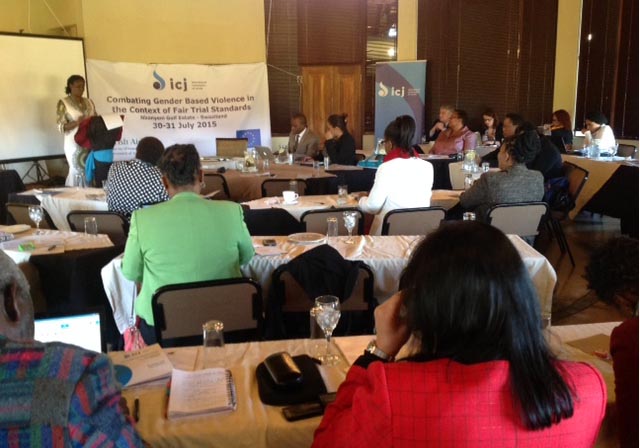
Jul 31, 2015 | News
The ICJ held a colloquium on this issue on 30-31 July. Judges, magistrates, lawyers, members of academia, and civil society leaders from SADC, ECOWAS and the East African Community attended the event.
The Acting Chief Justice of the Kingdom of Swaziland, MCB Maphalala and the Secretary General of ICJ, Wilder Tayler, officially opened the colloquium.
The participants discussed the concept of gender-based violence; the efforts to combat impunity in sexual offences and gender based violence at the national, regional and international level and made recommendations to eliminate the scourge.
One of the key objectives of the workshop was to contribute to the process of enacting sexual offences and domestic violence legislation in Swaziland.
The Sexual Offences and Domestic Violence Bill of Swaziland is before the house of assembly, which has asked stakeholders to submit their views, on what should be included in the law.
The judges, lawyers and civil society leaders had robust and honest discussions touching on effective innovative strategies to combat sexual and gender based violence.
Some of the recommendations included the training of judicial officers to be gender sensitive, changing societal attitudes and prejudices, raising awareness amongst parliamentarians, creative interpretation and application of regional and international standards when adjudicating cases of sexual offences and gender based violence as well as observance of fair trial standards at the national, regional and international level.
The colloquium was made possible with funding from IrishAid.
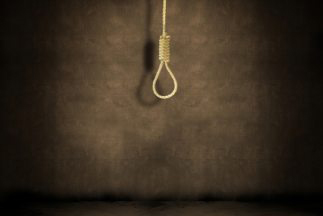
Jul 30, 2015 | News
The ICJ strongly condemned the execution of Yakub Memon, who was hanged in Nagpur Central Jail, India this morning.
“Yakub Memon’s execution is a distressing and regressive move, keeping India in the minority of countries which continue to carry out executions,” said Sam Zarifi, ICJ Asia Pacific Regional Director. “While Yakub Memon was convicted of terrible crimes, executing him was not the solution. India should immediately put in place a moratorium on the death penalty.”
A court set up under the Terrorist and Disruptive Activities (Prevention) Act (TADA) convicted and sentenced Yakub Memon to death for a range of offences, including conspiracy to commit terrorist acts, in connection with the deadly terrorist attacks in Mumbai in 1993.
These attacks killed more than 250 people and injured more than 700. The main accused in this case, including Yakub Memon’s brother Tiger Memon, have still not been apprehended or tried.
“In executing Yakub Memon, the Indian government has only fulfilled a desire for retribution and added to the disturbing trend of executions in the name of fighting terrorism in South Asia”, Zarifi added. “The death penalty has not been shown to have any deterrent effect on crime or terrorism anywhere in the world.”
The Indian Supreme Court had confirmed Yakub Memon’s conviction and sentence on appeal from the court set up under the TADA in March 2013.
The Indian government repealed the TADA in 1995, after sustained national and international criticism for its incompatibility with human rights law, particularly the right to fair trial.
Yakub Memon was tried under provisions of the TADA as it was the law in force in 1993, when the terrorist attacks in Mumbai occurred.
The Indian president rejected a first mercy petition on his case in April 2014.
He subsequently filed a review petition challenging his sentence before the Indian Supreme Court, which was rejected on 9 April 2015.
On 21 July 2015, the Indian Supreme Court dismissed his curative petition for the commutation of his death sentence.
A court had authorized his execution before his curative petition was dismissed.
Yakub Memon then approached the Indian Supreme Court challenging, both, the manner in which his curative petition was heard and dismissed, and the validity of the order authorizing his execution. However, the Supreme Court dismissed both these arguments yesterday.
Over the past week, Yakub Memon filed fresh mercy petitions to commute his death sentence before the Governor of the State of Maharashtra and the President of India. Both were rejected yesterday.
Yakub Memon’s lawyers challenged the rejection of the mercy petition, and asked the Indian Supreme Court to stay the execution as per the guidelines issued in the 2014 case of Shatrughan Chauhan v Union of India, for “safeguarding the interests of the death row convicts”.
These included ensuring a minimum period of 14 days “between the receipt of communication of the rejection of the mercy petition and the scheduled date of execution”.
But the Court – in a hearing early this morning – rejected this final plea.
Background:
This is India’s third execution in the past five years. India resumed executions in 2012, after a gap of eight years. Since November 2012, two other people have been executed, Ajmal Kasab and Afzal Guru.
They also were both charged and convicted for their role in terrorist attacks.
The ICJ expresses its solidarity with the victims of the 1993 attack, and their families.
India is a party to the International Covenant on Civil and Political Rights, which guarantees the right to a fair trial as well as the right to life and freedom from cruel, inhuman, or degrading treatment or punishment.
The UN Human Rights Committee, the supervisory authority for the ICCPR, has emphasized: “In cases of trials leading to the imposition of the death penalty scrupulous respect of the guarantees of fair trial is particularly important. The imposition of a sentence of death upon conclusion of a trial, in which the provisions of article 14 of the Covenant have not been respected, constitutes a violation of the right to life.”
In December 2014, the UN General Assembly adopted a resolution, for the fifth time since 2007, emphasizing that the use of the death penalty undermines human dignity and calling on those countries that maintain the death penalty to establish a moratorium on its use with a view towards its abolition. Some 117 UN Member States, a wide majority, voted in favor of a worldwide moratorium on executions as a step towards abolition of the death penalty.
The ICJ opposes capital punishment in all cases without exception. In line with the present international trend, the ICJ calls on India to impose an official moratorium on the death penalty, with a view to abolishing the death penalty.
Contact:
Sam Zarifi, ICJ Asia Pacific Regional Director (Bangkok), t: +66 807819002; email: sam.zarifi(a)icj.org
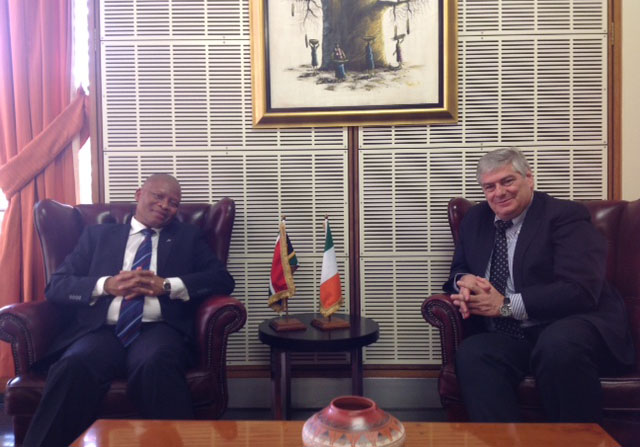
Jul 29, 2015 | News
They held bilateral talks at the Constitutional Hill in Johannesburg, discussing matters of mutual interest including possible collaboration in the building of strong, independent, impartial and accountable judicial institutions on the African continent.
They also agreed in principle on the importance of establishing a platform of systematic and sustained dialogue by judicial leaders in Africa on challenges that emerge from time to time that pose threats to judicial independence.
A few country specific situations on threats to judicial independence were discussed as well.
The ICJ Secretary General is in Southern Africa where he has met several judicial leaders including Chief Justice Godfrey Chidyausiku of Zimbabwe, Justice Rita Makarau the Secretary of the Judicial Service Commission in Zimbabwe and Justice Azhar Cachalia of the Supreme Court of Appeal of South Africa who is also the Chair of the Executive Committee of the ICJ.
He will be in Swaziland on Thursday and Friday before winding up his visit to the region on the 2nd August 2015.
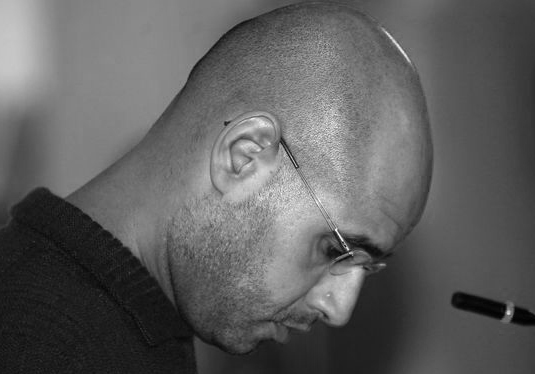
Jul 28, 2015 | News
The ICJ today expressed its serious concerns about the trial, conviction and sentencing to death of Saif al Islam Gadhafi, Abdallah al Senussi, as well as seven officials of the Gadhafi regime by the Tripoli Criminal Court.
The ICJ is deeply concerned that the trial of the officials of the Gadhafi regime failed to scrupulously respect the guarantees of fair trial as required by Article 14 of the International Covenant on Civil and Political Rights, to which Libya is a state party.
The imposition of the death penalty following such an unfair trial violates the right to life.
The ICJ opposes the death penalty in all circumstances as a violation of the right to life and the right not to be subjected to cruel, inhuman or degrading punishment.
“Libyan authorities must comply with their obligations under international law, refrain from implementing the death sentences against Saif al Islam and 8 former Libyan officials, and ensure that all defendants are retried before an independent and impartial tribunal and in full compliance with international fair trial standards,” said Said Benarbia, Director of the MENA programme at the ICJ.
“The trial is a lost opportunity to make a break from decades of unfair trials in Libya. It is also a missed opportunity to establish the truth about the legacy of alleged gross human rights violations committed during the 40-year reign of Moammar Gadhafi, including summary executions, enforced disappearances, torture and other ill-treatment, and arbitrary detention,” Benarbia added.
Fair trial violations included severe limitations on the defendants’ rights to access a lawyer, to adequate time and facilities to prepare a defence, and to be represented and communicate with a lawyer of their own choosing, the ICJ says.
23 other defendants were sentenced to prison terms ranging from life imprisonment to 5 years.
The charges against the officials included: “murdering and bombarding civilians during the 2011 revolution,” “inciting, participating and assisting in the murder of Libyans,” “recruiting mercenaries and establishing brigades and then providing them with weapons, uniforms and money to fight the protesters.”
Some defendants, including Saif al Islam Gadhafi, who continues to be held in militia custody in Zintan, were not present during the trial, though were connected by video link at times.
The ICJ is also concerned that the defendants’ rights to appeal are limited in numerous ways.
Convictions by the Tripoli Criminal Court will be reviewed before the cassation chamber of the Supreme Court.
The chamber only examines the proper application of the law by the lower courts and does not review the merits of the case.
In accordance with Libya’s obligations under international law, including the ICCPR, the defendants have the right to have their convictions and sentences reviewed by an independent higher tribunal.
Such review must concern both the legal and material aspects of the defendants’ convictions and sentences.
The ICJ is concerned that political and security instability in Libya continues to undermine the ability of the judiciary to function and administer justice independently and impartially.
In reviewing the situation in the context of the Saif al Islam Gadhafi case, the International Criminal Court (ICC), expressed concern about the inability of the judicial and governmental authorities to obtain testimony or to provide witness protection.
It found that Libya was unable to conduct a fair prosecution and trial of Gadhafi.
The ICC issued a warrant for his arrest to answer allegation of crimes against humanity.
The ICJ calls on the Libyan authorities to annul the unfair proceedings; to fully cooperate with, and surrender Saif al Islam Gadhafi to the ICC; and to ensure the fair re-trial of the other accused.
Contact:
Doireann Ansbro, Associate Legal Adviser, ICJ Middle East and North Africa Programme, t: +216 71 841 701, e: doireann.ansbro(a)icj.org
Libya-Saif Gadhafi sentence-News-Press releases-2015-ARA (full text of press releases in Arabic, PDF)
Photo: Ahmed Jadallah / Reuters
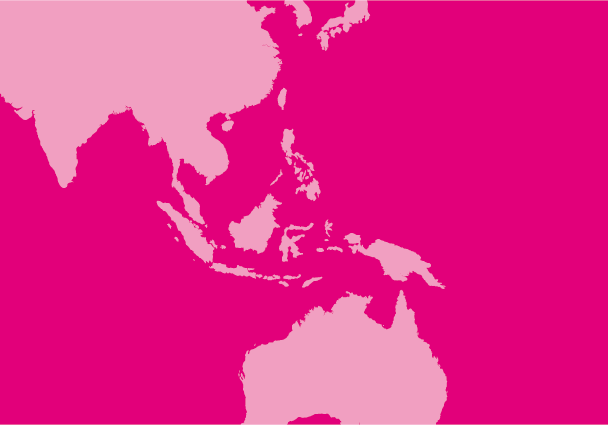
Jul 24, 2015 | News
The Cambodian Senate’s approval of the draft law this morning brings the Government one step closer to having the power to repressively monitor and restrict the registration and activities of associations and Non-Governmental Organizations (NGOs), the ICJ said today.
According to information provided to the ICJ, the Senate approved the draft Law on Associations and NGOs (LANGO) at approximately 10:00am local time this morning. Opposition Senators boycotted the vote.
“The draft law, once promulgated, will severely restrict the ability of members of civil society to exercise their rights to freedom of association and expression which Cambodia has a duty to protect under its international obligations,” said Kingsley Abbott, the ICJ’s International Legal Adviser.
“The regrettable irony is that in approving this draft law, which contains the stated aims of protecting civil society interests and promoting their partnership with public authorities, the Government has totally disregarded civil society’s calls for consultation and for the draft law to be withdrawn,” he added.
On 13 July 2015, the Cambodian National Assembly adopted the draft law after 55 members of the opposition party, the Cambodia National Rescue Party (CNRP), decided to boycott the vote.
The draft law will be promulgated once it receives the King’s signature, which is largely a symbolic step under the Cambodian Constitution.
The draft law’s most problematic provisions include:
- requirement of excessive documentation for the registration of both domestic and international associations and NGOs;
- arbitrary powers given to the Ministry of Interior and Ministry of Foreign Affairs to deny or revoke registration on the grounds that an association or NGO’s activities endanger public security, stability and order, constitute a threat to national security, national unity or the good culture, traditions and customs of Cambodian national society;
- the requirement that associations and NGOs adhere to a stance of neutrality vis à vis political parties, and provisions that allow for the suspension and dissolution of groups that violate this requirement;
- the requirement that associations and NGOs report to several ministries and submit an annual report summing up work activities and finances; and
- the inclusion of sweeping provisions for the suspension and dissolution of domestic and international associations and NGOs.
Background
The draft law, once promulgated, will bring Cambodia into non-compliance with international law and standards.
As a party to the International Covenant on Civil and Political Rights (ICCPR), Cambodia must guarantee the rights to freedom of expression and association and ensure that no restrictions are put in place except under the strict conditions set out in articles 19(3) and 22(2) of the ICCPR. These conditions clearly have not been met under the terms of the draft LANGO.
In addition, Article 2 of the UN Declaration on Human Rights Defenders provides that each “State has a prime responsibility and duty to protect, promote and implement all human rights and fundamental freedoms, inter alia, by adopting such steps as may be necessary to create all conditions necessary in the social, economic, political and other fields, as well as the legal guarantees required to ensure that all persons under its jurisdiction, individually and in association with others, are able to enjoy all those rights and freedoms in practice.
Article 8 states that everyone “has the right, individually and in association with others, to have effective access…to participation in the government of his or her country and in the conduct of public affairs…[including] the right, to submit to governmental bodies and agencies and organizations concerned with public affairs criticism and proposals for improving their functioning and to draw attention to any aspect of their work that may hinder or impede the promotion, protection and realization of human rights and fundamental freedoms.”
In June and July 2015, the ICJ and other international human rights groups sent joint letters to the Government of Cambodia, including to Prime Minister Hun Sen and the President of the National Assembly, urging for the withdrawal of the draft law.
Contact:
Kingsley Abbott, ICJ’s International Legal Adviser, t: +66 94 470 1345, e: kingsley.abbott(a)icj.org









